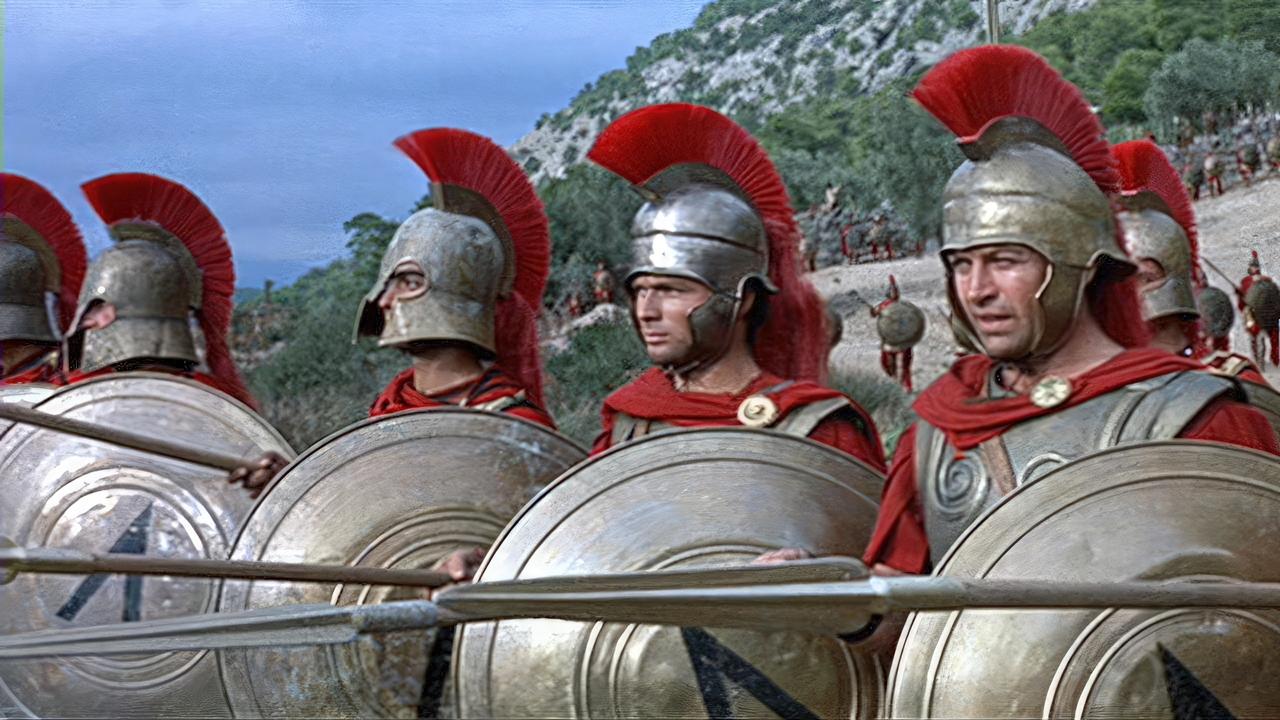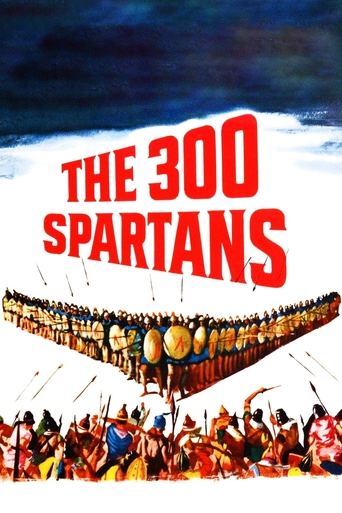

What a waste of my time!!!
... View MoreAlthough it has its amusing moments, in eneral the plot does not convince.
... View MoreEntertaining from beginning to end, it maintains the spirit of the franchise while establishing it's own seal with a fun cast
... View MoreThe tone of this movie is interesting -- the stakes are both dramatic and high, but it's balanced with a lot of fun, tongue and cheek dialogue.
... View MoreWhile the budget to this is probably a fifth of that of the better known 300 (which was influenced by this movie when Frank Miller saw it as a child), this is, even with the Spartans wearing Roman gear, the more faithful adaptation. The 300 march to thermopylae and die there, as commanded. But in doing so they save Greece. A really well done low budget film, well worth seeing. And it is available on Blu Ray.
... View MoreA small army of Greeks spearheaded by 300 Spartans do battle with the whole invading Persian army.When it was released in 1962, critics saw the movie as a commentary on the Cold War, referring to the independent Greek states as "the only stronghold of freedom remaining in the then known world", holding out against the Persian "slave empire". This is interesting, as I absolutely do not see it. What is the parallel? Comic artist Frank Miller saw this movie as a boy and said "it changed the course of my creative life". His graphic novel "300" is about the Battle of Thermopylae, and in 2007, was adapted into a successful film. What I like about this is that it might be assumed that the movie "300" is a remake of this film (albeit a very different one). But, in fact, "300" comes from a graphic novel that was inspired by the original movie... so there's that extra step, giving it a more interesting lineage.
... View MoreWhen this ran on television years ago it was quite popular. The film is sort of a continuation of the middle ages films that became a staple of Hollywood in the 1950's and 1960's. Recently some of them are getting remade because of the advances in special effects.This movie in it's time, holds it's own quite nicely. Based upon the true story from history, there is much to recommend this one. In fact the viewer might wish to do a double feature of this movie and then the recent remake 300 and compare the things in common with the differences. The story of 300 Spartans standing up to an entire Persian empire is really quite compelling, in a way more so than the Americans standing up to the entire Mexican Army at the Alamo. It is the same type of story though, hero's enshrined for the ages by doing the impossible and holding back a huge powerful enemy to buy time so they can eventually be defeated.It is interesting the same history being repeated here. This story is a great one of history, and now with modern technology almost certainly an outmoded type of hero worship from the past.
... View MoreWhile I thought that the movie 300 with cinematrographically dazzling, this film, to me, is the more historically accurate (as much as a Hollywood film is accurate). The movie is based on one of the most famous battles in the ancient world (though there is probably still a lot of debate as to what the greatest battle was though). This battle, to me, is famous, because it is not only a battle where the protagonists were defending their freedom, but also because Leonidas, one of the Spartan Kings, went against the wishes of his people to go and lay down his life for all of the Greeks. It is also a tragedy, because not only was he fighting against incredible odds, but also because in the end he was betrayed.This movie does a very good job in painting the background and explaining to us who the major characters are. While a movie based on the events in the 2nd World War need little explaining, most events in the ancient world are unknown by a majority of the populace. While we may have all heard of Alexander the Great and Julius Ceaser, very few of us can say who Themistocles, Leonidas, and Xerxes the Great were (Themistocles was an Athenian Admiral, while Xerxes was the Persian king who desired to complete what his father was unable to do, and that is conquer Greece - he failed).As mentioned, while the special effects in 300 are impressive, in the end it comes down to being able to replay the events close to the actual events, and to give the audience enough background so that they are not scratching their heads wondering what is happening and why it is happening. This movie does both of these things quite well.One should mention the story behind the movie, and that is the battle of Thermopylae. Around the 5th and 6th Centuries BC, Persia had risen to become a world superpower under the king Cyrus the Great. During the reign of his son Darius, a section of the empire, along the Anatolian coast (the Aegean seaboard of Turkey, known as the Ionian citystates) revolted against Persian rule with the help of the Greeks. Angered at their meddling, Darius raised an army to attempt to crush the Greeks. His first foray met with disaster when his navy was destroyed by a freak storm in the Aegean, and his second foray met with disaster when his troops were defeated at the battle of Marathon. However, Darius died before he could mount a third expedition, and this was taken up by his son Xerxes. Thus Xerxes raised the biggest army that the world had ever seen (according to the historian Herodotus) and made his way to Greece. However, he was temporarily halted at the pass of Thermopylae by a small force of 300 Spartans (King Leonidas and his personal bodyguards) for about a week, however when Leonidas was betrayed, in that Xerxes was told of a goat track around to their rear, their brave and valiant effort came to naught.While this movie only retells a famous historical battle, the event itself shows how people are willing to risk all to protect their desire to be free. Many historians have explored this event and speculated on how the world would have turned out if the Greeks had lost. This, in the end, is irrelevant, because the won. Still, counter-factual history to assist us in understanding the relevance of the event and how this event impacted upon the world in which we live.
... View More